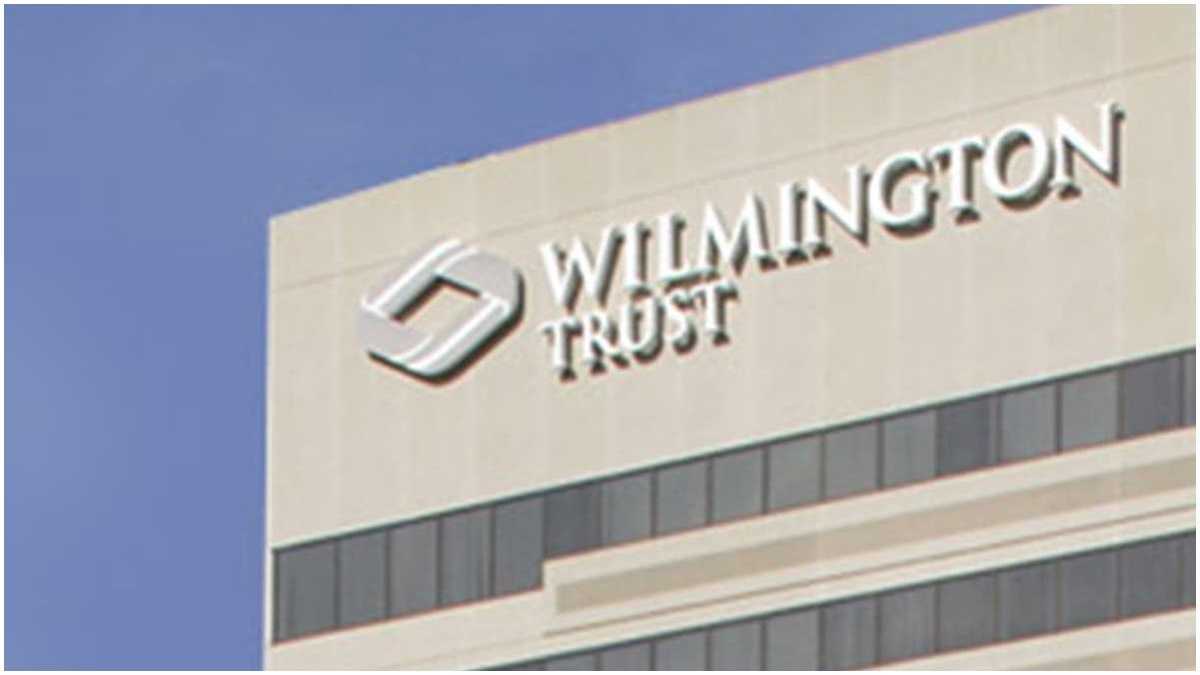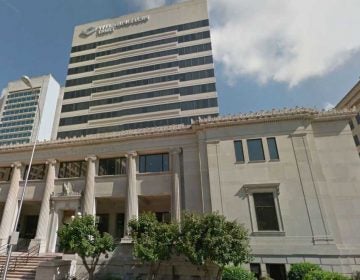Trial for former Wilmington Trust execs begins

(File/Newsworks)
The trial of four former Wilmington Trust executives accused of bank fraud and conspiracy began in Delaware’s federal court Monday.
Robert Harra, David Gibson, William North and Kevyn Rakowski are accused of hiding millions of dollars in bad loans on the bank’s books from the Federal Reserve, the Securities and Exchange Commission and the public between October 2009 and November 2010.
“The defendants made up their own rules for reporting past due loans,” said assistant U.S. Attorney Lesley Wolf during opening statements.
A 19-count superseding indictment charged the defendants with lying in securities filings and to agencies of the federal government; conspiracy to defraud the U.S., to commit fraud in connection with the purchase and sale of securities; making false statements to regulators; and a host of related charges.
Wolf said the defendants schemed to hide the true volume of past due loans on a “second set of books,” and were well-aware the practice was illegal.
She said by the end of 2009, the bank reported only $10.9 million in bad loans, while waiving more than $360 million.
The bank also raised $287 million in investments without disclosing its financial problems to investors, Wolf said.
Auditors, the Federal Reserve and other outside parties warned Wilmington Trust it had significant problems in its loan portfolio, she said. The entities were so concerned, they downgraded the bank’s level of safety and soundness, requiring it to submit monthly reports of past-due loans, Wolf said.
When the waiver practice was no longer sufficient, she said, the defendants created a “mass extension process” of temporarily extending loans on a short-term basis.
In less than two months, the bank allegedly extended about 800 loans worth more than $1.3 billion. Wolf said some borrowers didn’t know their loans and been extended.
Harra’s attorney Michael Kelly argued the defendants did share past-due loan information with the Federal Reserve and auditors. He pointed out the bank’s CEO was also on the Federal Reserve board.
The practice of waiving past-due loans was in place long before 2009, Kelly said.
“Why is it, all of a sudden, what the bank had been doing all these years was a crime in 2009? This is a practice everyone knew about,” he said.
“Nobody said to them, ‘Don’t do this, it’s illegal.’ ”
Kelly, who said a loan is not past due if the borrower is paying interest, also argued the bank was allowed to extend loans at any time — and often extended them verbally with the agreement to make written contracts at a later date.
“They wanted people to get through these tough times during the recession,” Kelly said. “These people never intended to commit a crime. These people never even thought about committing a crime … These were people, under the circumstances, were doing the best they could.”
In October, Wilmington Trust, which was acquired by M&T Bank in 2011, reached a $60 million settlement with the U.S. attorney’s office — including $16 million previously paid to the Securities and Exchange Commission in a related action.
The trial is expected to continue for six weeks.
Disclosure: The Wilmington Trust supports WHYY.
WHYY is your source for fact-based, in-depth journalism and information. As a nonprofit organization, we rely on financial support from readers like you. Please give today.




